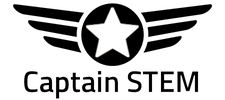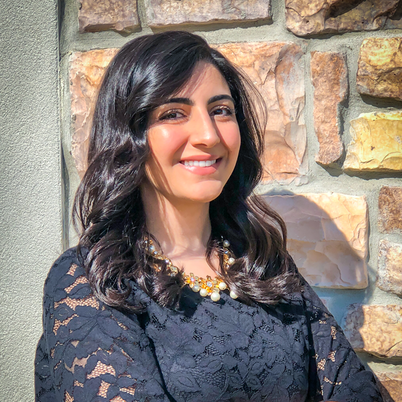Danita Baghdasarin, Mechanical Systems Design & Analysis Engineer
|
Danita Baghdasarin is a Mechanical Systems Design and Analysis Engineer at Boeing. Some days you'll find her "on console" in the Mission Evaluation Room (MER), where she gets to learn about what’s going on with the other MER and flight control teams, as well as the crew on the International Space Station (ISS).
|
Education
|
BS in Aerospace Engineering
MS in Engineering Management MS in Aeronautics PMC in Bioengineering (in progress) PhD Candidate in Aviation Safety and Human Factors (in progress) |
How did you end up in this role?
|
Mostly a great network! I was an overachiever in high school, which meant I was very frustrated when I started to struggle in college. Being part of a sorority helped me in a few ways, including connecting me with other women in STEM and providing me with a support system that pushed me to continue my education when I felt like quitting. My ERAU and Alpha Xi Delta affiliations also helped me land my first job, as the hiring director/my direct supervisor was also an ERAU alumnus and had participated in Greek Life. I haven’t worked for Jeff in over 6 years, but we have stayed in touch and I still go to him with aviation questions!
A positive attitude is also important. I always wanted to work on the space program, but my first ~6 years in industry were in aviation. I’ve tried to approach each role as an opportunity to build a set of transferable skills (like problem solving and soft skills) and to contribute to my new role and environment things I learned in the previous role and environment. Simply showing up to work every day with the intent to help others and learn has helped me stay motivated while waiting for an opportunity to join the space program. I’ll be celebrating my 1 year ISS program anniversary on the 17th, and I have already gotten to apply what I’ve learned in other roles here, so it’s all been good experience! I struggled with imposter syndrome early in my career. I didn’t know anything about aviation/aerospace before starting at ERAU because I grew up without exposure, so I felt like I was behind the curve as a student. I also wasn’t used to being the youngest, one of the only girls, or the only person who looked like me (I grew up in a closely-knit ethnic minority community) in the room. It got really exhausting and lonely trying to fit in with students who had those things in common or being told I wouldn’t ever be successful. I faced these same challenges in industry, although it became much more difficult to be the only woman in the room. I think I definitely would have left the industry very early in my career if it had not been for my network. It was a huge relief to be able to contact any of the women I knew in aerospace and other STEM fields and talk about these issues and know that I wasn’t alone. |
A day in the life
|
There isn’t really a typical “day in the life”, which is something I love about my work role. Each day has its own challenges and joys. I’m still new to this team, and to working on the space program, so my favorite days now are the ones during which I support International Space Station (ISS) quiescent operations. There’s a lot of administrative work to complete and organize before the team logs on for the day, but quiescent operations also requires us to be “on console” in the Mission Evaluation Room (MER). This means we get to learn about what’s going on with the other MER teams, flight control teams, and ISS crew. I see this as a unique training opportunity, because I get exposure to so many disciplines and roles beyond my own. Also, who doesn’t want to work in Mission Control!?
When not supporting quiescent operations, I can probably be found in a meeting (either collaborating with team members to analyze data and solve problems, or working with internal and external customers), on console supporting real-time operations, or digging through engineering data to learn about additional subsystems. At the end of the work day, I shut off my work laptop and fire up my personal laptop to switch to my student role. This is less dynamic but still pretty interesting because I get to study something I am very passionate about. I typically continue working until about 9-10PM. Consistently putting in a few hours each evening helps me keep on top of my homework so that I can relax on the weekend. |
Advice for aspiring students |
First of all, great choice! This is a fun field to work in and the future looks very exciting.
Be willing and ready to put in some serious work, and embrace any and all assignments with a positive attitude. Take advantage of opportunities to develop your network and your people skills, and don’t be afraid to ask for help. Finally, get engaged as a mentor today – you have more to share with others than you might think! This can be through community service, tutoring a younger sibling, or a formal program such as Captain STEM. My responses here are pretty short, but I am more than happy to continue talking about working in STEM, what it’s like to be a minority at school/work (whether that’s age, gender, race..), making a big career change, or any of the other points. |


